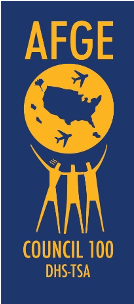The Hatch Act

POLITICAL ACTIVITY (HATCH ACT)
Authority – The Hatch Act (5 USC § 7321, et. seq.) and 5 C.F.R. Part 734
Federal employees may not engage in partisan political activity in the workplace. That is why most (but not all) of the restrictions on political activities focus on workplace behavior. Some rules also apply while away from the workplace, such as in regards to social media activity. Additional restrictions apply to career members of the Transportation Security Executive Service (TSES).
What is a “political activity?” It is an activity directed toward the success or failure of a political party, candidate for partisan political office, or partisan political group, such as wearing a button or posting a banner that supports a candidate.
Employees may not:
- Run as a candidate for office in partisan elections (except as an independent in local elections in designated areas – employees should seek guidance from field counsel before engaging in this activity);
- Solicit, accept, or receive political contributions;
- Engage in political activity while on duty;
- Engage in political activity in any government office;
- Engage in political activity while wearing an official uniform;
- Engage in political activity while using a Government vehicle; and
- Wear political buttons while on duty.
Non TSES employees can engage in many partisan political activities outside the government workplace, to include: registering to vote and voting, contributing money to political organizations, attending political rallies or meetings, distributing campaign literature, supporting a partisan campaign, and serving as a delegate to a convention.
Career members of the TSES face more restrictive rules. For example, they may not take an active role in partisan political campaign activities, including the management of a political party or campaign, or holding partisan political party office.
If you have questions, please contact your Council Leadership.
